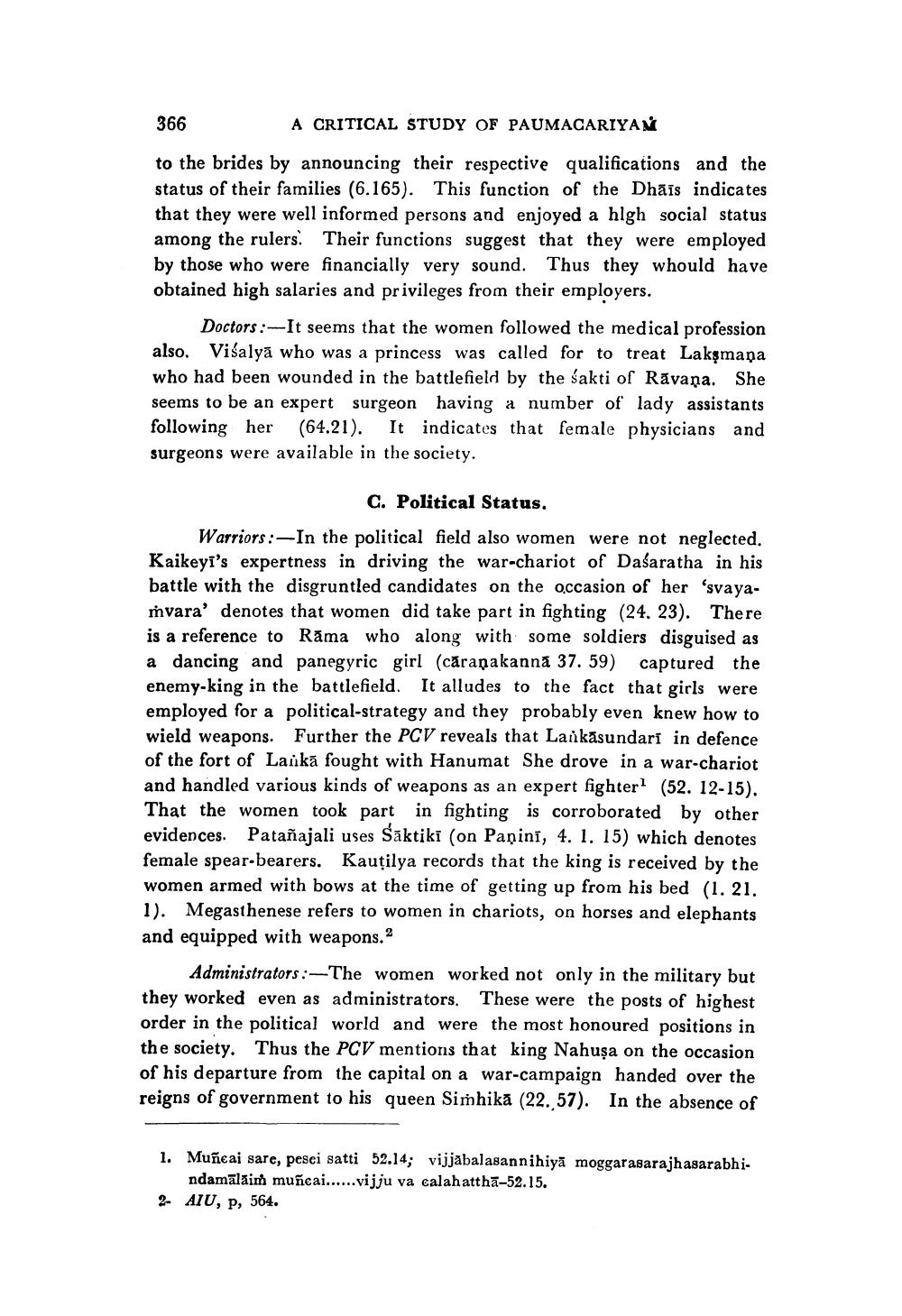________________
366
A CRITICAL STUDY OF PAUMACARIYAN
to the brides by announcing their respective qualifications and the status of their families (6.165). This function of the Dhāis indicates that they were well informed persons and enjoyed a high social status among the rulers. Their functions suggest that they were employed by those who were financially very sound. Thus they whould have obtained high salaries and privileges from their employers.
Doctors: It seems that the women followed the medical profession also. Visalyā who was a princess was called for to treat Lakşmaņa who had been wounded in the battlefield by the sakti of Rāvana. She seems to be an expert surgeon having a number of lady assistants following her (64.21). It indicates that female physicians and surgeons were available in the society.
c. Political Status. Warriors:- In the political field also women were not neglected. Kaikeyi's expertness in driving the war-chariot of Daśaratha in his battle with the disgruntled candidates on the occasion of her 'svayaỉvara' denotes that women did take part in fighting (24. 23). There is a reference to Rama who along with some soldiers disguised as a dancing and panegyric girl (cāraṇakanna 37. 59) captured the enemy-king in the battlefield. It alludes to the fact that girls were employed for a political-strategy and they probably even knew how to wield weapons. Further the PCV reveals that Larikasundarí in defence of the fort of Laikā fought with Hanumat She drove in a war-chariot and handled various kinds of weapons as an expert fighter (52. 12-15). That the women took part in fighting is corroborated by other evidences. Patañajali uses sāktiki (on Paņini, 4. 1. 15) which denotes female spear-bearers. Kautilya records that the king is received by the women armed with bows at the time of getting up from his bed (1. 21. 1). Megasthenese refers to women in chariots, on horses and elephants and equipped with weapons.
Administrators: — The women worked not only in the military but they worked even as administrators. These were the posts of highest order in the political world and were the most honoured positions in the society. Thus the PCV mentions that king Nahuşa on the occasion of his departure from the capital on a war-campaign handed over the reigns of government to his queen Simhika (22. 57). In the absence of
1. Muñeai sare, pesci satti 52.14; vijjābalasannihiyā moggarasarajhasarabhi
ndamālaim muñeai......vijju va calahattha-52.15. 2- AIU, P, 564.




